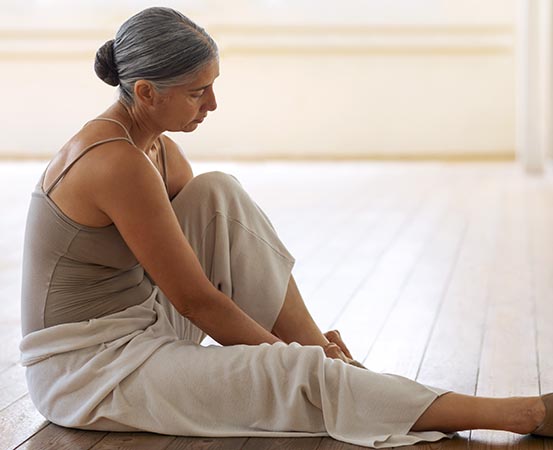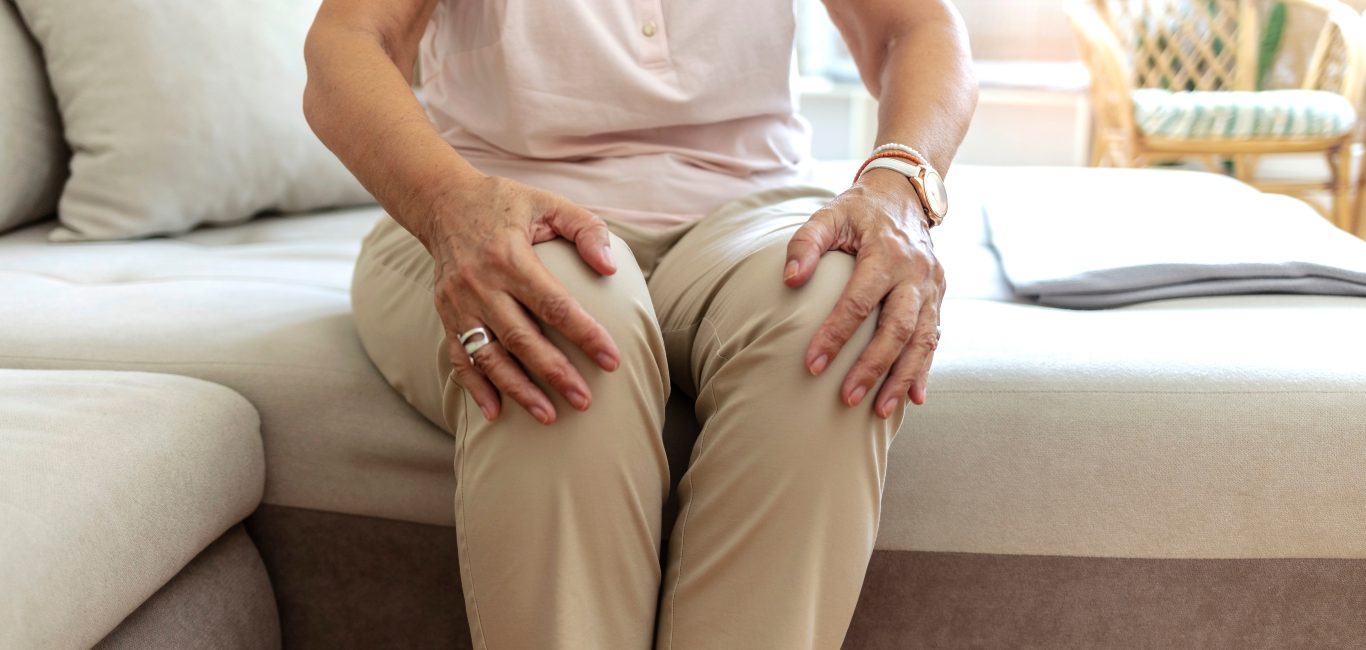
As a woman’s body transitions through menopause, many biological changes take place, often accompanied by a series of health shifts. Of these, its impact on bone health is a primary concern due to the short and long-term implications. The hormonal fluctuations negatively impacting bone density set the stage for potential complications, including osteoporosis and an elevated risk of fractures.
Experts underline how crucial it is to be aware of the potential risks and take precautions to prevent complications.
Effects of menopause on bones
The sudden decline in estrogen levels after menopause has an immediate impact on bones. The drop in estrogen causes increased bone resorption in osteoclasts (cells responsible for the body’s natural resorption and breakdown of bone tissue), resulting in rapid bone loss.
“Estrogen plays an essential role in maintaining bone health by encouraging the activity of osteoblasts (the cells responsible for bone development), and suppressing that of osteoclasts,” explains Dr Sarath Kumar, bone and joint expert (orthopedics), Fortis Malar Hospital, Chennai. “It also contributes to overall bone density and strength by regulating calcium absorption and usage.”
According to Dr Kumar, the first 10 years following menopause are crucial for women. This is because 20 – 30 percent of bone loss occurs during this time. This increases the risk of osteoporosis-related fractures.
Menopause and osteoporosis
Dr Sonamm Tiwari, consultant gynecologist and obstetrician, Hiranandani Hospital, a Fortis Network Hospital, Mumbai, explains, “In women, skeletal growth normally ceases when they are 18 to 20 years old, while bone mass peaks between the ages of 20 and 30. Following this, bone mass starts declining gradually.”
“Bone loss and osteoporosis are common in old age — 65 years and beyond,” shares Dr Tiwari. Osteoporosis is a condition that causes the bones to weaken and become brittle, increasing the risk of fractures and other bone-related injuries.“It starts earlier in post-menopausal women. In addition to the fall in peak bone mass after the 30s, the bone resorption rate increases during menopause, while the rate of bone production declines. This makes women more susceptible to osteoporosis from bone loss.”
The risk of post-menopausal osteoporosis in women can be magnified by several other variables. These include steroid intake, excessive antacid use, hypothyroidism, nutrition deficiencies and a lack of physical activity. Habits like drinking, smoking and increased caffeine intake also contribute to this.
Understanding osteoporosis symptoms and taking actions
“Usually, women do not realize they have osteoporosis until they have a bone fracture or an unexpected injury,” highlights Dr Tiwari. “However, you may determine osteoporosis by looking for symptoms like frequent back or joint pain, height loss, and a bent or hunched posture.” Several tests are also available in the modern medical setting to measure bone mineral density. These aid in the early detection of osteoporosis or osteopenia (an early sign of osteoporosis, in which the bone mineral density is decreased, but not to the same degree as osteoporosis). With constant monitoring, one can implement intervention strategies earlier. The tests include:
Blood test monitoring: It can offer insightful information on bone mineral density and the risk of osteoporosis by assessing markers like calcium, vitamin D, and parathyroid hormone levels in the blood.
DEXA (Dual-energy X-ray absorptiometry) scanning: DEXA scanning is a type of medical imaging primarily used to evaluate bone strength and quantify bone mineral density. Through these, it helps diagnose conditions like osteoporosis and osteopenia.
BMD (bone mineral density) scanning: BMD scanning is a particular type of DEXA scanning that measures the mineral density, primarily calcium density, in bones. DEXA scanning, on the other hand, can be used for a wider variety of applications, such as measuring fat and lean tissue mass.
Dr Kumar recommends blood monitoring every six months and DEXA or BMD scans 12 – 18 months after menopause.
Strategies to maintain bone health after menopause
There is no way to avoid the health shifts that occur post menopause. However, many strategies can be implemented to keep bone health at optimal levels, say experts.
Physical activity: Osteoporosis is more common in those who lead a sedentary lifestyle, and the same applies after menopause. Dr Tiwari advises exercising for 30 – 40 minutes at least five days a week to minimize the risk of osteoporosis.
“Bone density can be increased through weightlifting or resistance training. At the same time, aerobic workouts boost muscles’ functional activity. One must balance the exercises as either strong bones or strong muscles alone cannot provide balance,” says Dr Tiwari.
Hormone replacement therapy: For menopause, it involves the use of medications that contain hormones like progesterone and estrogen to treat menopause symptoms.
“Hormone replacement therapy has become the first and best course of action for menopause. It prevents bone loss and tackles the other menopausal symptoms, such as hot flashes and vaginal dryness,” explains Dr Tiwari. She adds, “You are bound to lose 5 –15% of your bone density even while receiving hormone therapy. Therefore, one should get regular medical checkups to address any difficulties or risk factors.”
Calcium and vitamin D intake: “Calcium and vitamin D are vital to maintain healthy bones,” says Dr Kumar. Foods like milk, dairy products, green leafy vegetables, soy, almonds and fish with edible bones help with dietary calcium absorption. On the other hand, vitamin D is synthesized in the body through adequate sun exposure.
Lifestyle changes: Unhealthy habits like drinking, smoking, and excessive caffeine intake can influence bone health by impairing calcium absorption and changing bone remodeling. Hence, experts advise cutting back on use after menopause to maintain optimal bone health.
Takeaways
- Estrogen levels suddenly drop after menopause. This has a detrimental effect on bones as bone mass density is lowered and the risk of osteoporosis and fractures increases.
- Early symptoms of osteoporosis after menopause may not be obvious. However, signs like severe hip or back pain, height loss, and a stooped or bent posture could signify its onset.
- Blood monitoring, DEXA scans, and BMD scans are a few of the tests that can be used to determine bone mass density.
- Experts suggest physical activities, hormone replacement therapy, calcium and vitamin D intake, and some lifestyle changes to maintain optimal bone health after menopause.

















